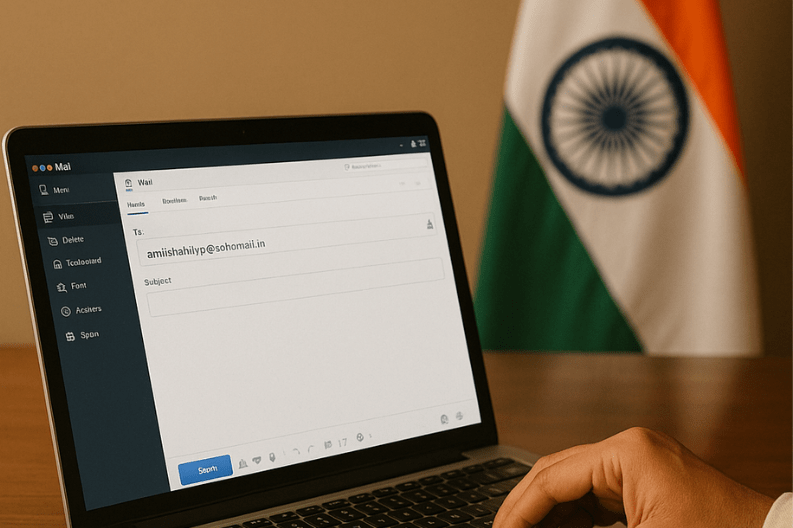New Delhi, October 8: The announcement that Amit Shah changes to Zoho Mail has gained wide public attention. On Wednesday, Union Home Minister Amit Shah revealed that he is now using Zoho Mail for his official communication. He shared this update on X (formerly Twitter), where he also provided his new email address, [email protected]. Shah requested everyone to use this new email for all future correspondence.
In his post, Shah ended with the phrase, “Thank you for your kind attention to this matter.” This courteous sign-off, similar to one often used by former U.S. President Donald Trump, sparked online discussions and light-hearted comparisons.
This move by Shah is more than just a change in email provider. It represents a larger message about supporting Made-in-India technology and promoting self-reliance. At a time when India faces high U.S. tariffs on its exports, nearly 50% on several products, many leaders are turning to Indian brands. By using Zoho Mail, Shah is emphasizing the importance of using locally developed technology to strengthen India’s economy and digital independence.
Zoho Corporation, the company behind Zoho Mail, was founded in 1996 in Chennai, Tamil Nadu. It started as AdventNet before adopting its current name in 2009. The company’s founders, Sridhar Vembu and Tony Thomas, have built Zoho into one of the leading global software firms. It now provides over 55 business applications, including email, CRM, accounting, and data management tools. Zoho operates in more than 180 countries, serving millions of users worldwide.
In recent years, Zoho has focused heavily on developing Indian solutions for Indian consumers. The company recently launched Arattai, a Tamil word meaning “chat.” This messaging app was created to offer Indians a secure and local alternative to global apps like WhatsApp and Telegram. Available on both Android and iOS platforms, Arattai has quickly gained popularity, particularly among users who prefer data privacy and locally hosted servers.
Experts say Shah’s decision will likely boost the visibility of Indian tech companies. They believe this change sends a strong message to government departments and private users to explore indigenous software. It also aligns with Prime Minister Narendra Modi’s “Atmanirbhar Bharat” (Self-Reliant India) campaign, which encourages innovation and domestic production.
Technology analysts note that Zoho has consistently focused on ethical business practices. Unlike many global platforms, Zoho does not rely on ads or sell user data. Instead, it charges reasonable subscription fees and prioritizes user privacy. This aligns well with India’s growing focus on data sovereignty, keeping Indian data within the country’s borders.
The transition to Zoho Mail also highlights how Indian companies are becoming reliable alternatives to global tech giants. As the world becomes more dependent on digital communication, the demand for secure and homegrown solutions is rapidly increasing. Zoho’s infrastructure and customer service have earned it recognition as a trustworthy platform for both business and government use.
Many political analysts see Amit Shah’s email switch as symbolic. It not only supports Indian entrepreneurship but also sets an example for others in public office. By promoting Indian software, he is reinforcing confidence in the country’s ability to create advanced digital tools.
In conclusion, Amit Shah changes to Zoho Mail marks a meaningful step in India’s journey toward technological self-reliance. This move supports homegrown innovation, strengthens data security, and encourages citizens to adopt local solutions. As more leaders and organizations follow this example, India’s tech ecosystem is likely to become stronger, more independent, and globally competitive.



